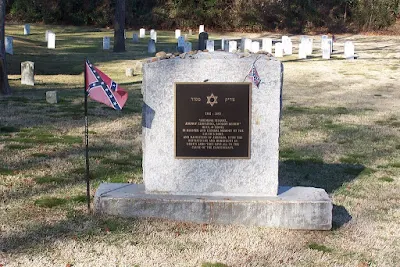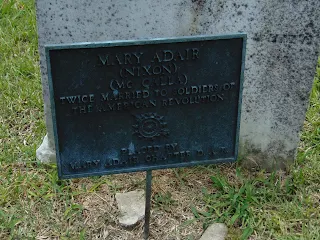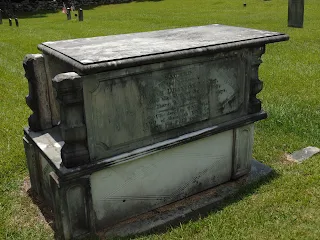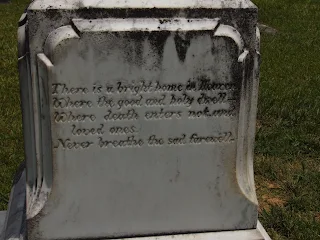By Jonathan Miller, Rabbi Emeritus of Temple Emanu-El in Birmingham (With special guest C.W. Roden -- The Man Deniers Fear The Most)
I am trying to understand the affection many Southerners have for the monuments and symbols of the Confederacy.
That takes an open mind and not one full of SJW nonsense, sir.
Our first home in the Birmingham area was in a neighborhood named
after Civil War battles more than 150 years ago. During these battles,
America lost 2 percent of its population to battlefield casualties.
Actually the majority of casualties during the War Between the States were the result of diseases caught in camp, rather than actual battlefield wounds. No doubt one of many facts you will get wrong. If
we consider the wives and sisters and children and parents who grieved
for these soldiers on both sides of the war, the number of people who
personally suffered grows exponentially.
No doubt there, and I do applaud your ability to think of them. Some of those same Alabama families were the wives, brothers, and children of my own great-great-grandfather, a proud Confederate soldier who was killed at Chickamauga. And considering the fact that
the Southern states seceded from the Union in order to preserve its way
of life which was dependent on the institution of slavery and built on
the backs of cruel taskmasters parading as gentle men and women, it is
astonishing to think of this war as a moment of honor.
Again your ignorance of the details shows sir.
(1) Slave masters, particularly rich plantation owners, did not personally deal with slaves in the fields. Those jobs went to overseers and sometimes black foremen, who were usually the cruel ones.
(2) The institution of slavery unfortunately was in no real danger of being abolished in the United States when the first seven Southern States seceded from the Union in 1860-1861. President Lincoln himself stated on more than one occasion that he had no plans to interfere with slavery in the States that currently practiced it.
(3) Nobody who honors the bravery of the Confederate citizen soldier thinks of that war, or the idea of war itself, as a "moment of honor" in any significant way. That you would interpret remembering the dead and war in such a manner reflects very poorly on your attitudes as a man of faith, and sense of morality as a human being.
Why would people living in Alabama want to memorialize the Civil War,
let alone remember these battles as moments of Southern glory?
Why do people in my own state of South Carolina remember and memorialize the American Revolutionary War? I mean slavery was practiced in America then too and the institution was in full force even as Americans fought to maintain independence from the British Crown -- the same British Empire that was already abolishing slavery in its other colonies FYI.
Also I would again stress that honoring the dead and remember the battles does not mean memorializing war, or calling it "glory" dude.
The South lost.
The entire USA lost Vietnam, what's your point?
And as painful as that was for people living in Alabama so many
decades ago, I am glad about that.
Well glad you are living in a war that ended long before either of us were born. For me I don't dwell on the war itself, just honoring the dead on both sides. It wasn't my war anymore than it was yours. We kept our place in the United
States of America.
"We?" Um, you didn't fight in the war, nor do you speak for the events that happened so long ago. We are not a group-think collective, Rabbi Social "Just Us" Warrior. We
(Americans in 1865) abolished the stain of slavery, even though the
legacy of slavery and its later bigotry and racism still make life hard
for the people whose ancestors were bought and sold as chattel.
That of course wasn't just a "Southern thang" though was it? Lots of blame on racism and white supremacist attitudes to go all around in the good ole US of A in the late 19th to mid 20th.
And slavery, it should be noted
(you missed a comma here) made life far more complicated for
the slave owners and traffickers and bounty hunters who were sucked into
the vortex of exploitation and violence against human beings.
No doubt there, it certainly was for the folks who actually had to do the dirty work in the fields too. Slavery
was and is morally wrong, and its discontinuance should be celebrated by
every person of every color and religious faith.
So remind me again what you and your faith (and I don't mean your religious one....or maybe I am considering the "religion" of SJWs is Liberalism first and foremost) are doing about ending slavery that still goes on in Africa and parts of the Middle East today in the 21st century? So why are some in the
South
in love with honor and respect the symbols of the Confederacy, particularly when
they are symbols of people who lost their war and who inflected pain on
their fellow human beings?
Why do we honor the US flag and have that great big "participation trophy" (oops I mean wall) in Washington DC to the men who died in Vietnam, who participated in a number of alleged war crimes according to some? Humm?
I am a Jew.
Really so is my friend Jenna, who also happens to be one of those "in love with" flags, monuments and graves honoring the Southern dead. I am sensitive to symbols which haunt my historical
memory.
Probably a little bit too sensitive like all Left-leaning twits too. The Nazi symbol of the swastika evokes fear and terror for me.
Ah here we go. When I see it, I feel the pain of the terrible cruelty that Germany and
Europe inflicted on their citizens and my people.
Um, actually "Germany and Europe" itself did not commit those atrocities, rather it was people who did it. Land masses themselves cannot commit crimes. It makes me shudder.
I am also presuming you personally were not old enough to have been involved in the Holocaust were you?
I have traveled to Germany. At first, I did not want to go. I did not
want to hear the German language or admire German architecture or
German culture.
So you admit to being a cultural bigot then? Good, the ability to admit ones flaws is the first step to recovery. It brought back too many painful images for me.
Again why? Germany has a long and rich cultural identity that existed for centuries, and that is not redefined by the efforts of the Nazi Party. Far from it. Of course I personally don't accept the concept of "collectivist guilt" nor believe that a people are guilty of the alleged crimes of one's forefathers. But I
have found my travels to Germany to be healing to some degree.
The German people regret the Holocaust when they slavishly followed
history's cruelest madman and perpetuated the worst crimes against
humanity.
Virtually all of the German people living today of course did not live during the scourge of Nazism and fascism. What would they have to feel any "guilt" over? Again collectivist guilt is garbage. While they may exist in dark alleyways, I did not see any
swastikas
Did you try the local Hindu temples? or jackbooted soldiers
Being a democracy, Germany does not have uniformed soldiers patrolling the streets in any form. or Hitler look-alikes trying to
recapture the imagined glory of the Third Reich at its most powerful.
Now you're just being stupid to the point of being brain-dead silly. Where are you going with this?
Instead, the German people preserved their history without trying to
whitewash it.
Good for them. Seriously, I support similar efforts, even though you and I might differ on what would define "whitewashing" I suppose. On the streets of Berlin and Frankfurt and Munich are
small monuments of remembrance. "Behind this wall was a Jewish school."
"Here was a Jewish home/business." "On such and such a date, Jewish
people were gathered in this spot and deported to (name the
concentration camp) where they were killed."
Sad reminders of terrible events, but I do not deny necessary ones. The victims of Hitler's holocaust of the Jewish People (not to mention any other group -- including some Christians -- that he had no use for) deserve to be remembered with dignity and honor.
Monuments like these, monuments of remembrance
(again you missed a comma) remind the people of
Germany of the evil their forbearers perpetuated in a brief but
devastating period of historical lunacy.
Such monuments exist in many countries, including this one. What is your point? In Germany today, the goal of
the monuments is not to celebrate German power
(comma) or to romanticize the
period when the German Volk reigned supreme. Instead, the goal is to
remember, to acknowledge responsibility, and then to pledge that this
kind of hatred will never be perpetrated in the future against other
human beings.
Yes, but what does this have to do with Confederate memorials to the dead?
I believe that we Southerners should insist that we erect new
monuments.
I would agree there. We should not revere the generals and soldiers who lost their
battles and died for an immoral cause.
If by "immoral" you mean defending one's homes and families from a ruthless invader that sought to loot and plunder said homes and families, then you and I are very much in disagreement. Of course we should remember the
casualties and dignify their losses to their family and community.
Which is what Confederate memorials and monuments do. Of
course we should remember the families who mourned for the dead sons and
husbands and brothers who suffered terribly wearing the Confederate
uniform and acknowledge their bravery and sacrifice.
Wow you and I can agree on that one too! I'm starting to get scared now. But we should not
honor the cause for which they gave the ultimate sacrifice. That cause
was unjust.
I would not call defending home and honor "unjust" though it is not the point. I honor the citizen soldier of the South. I could care less about the Confederate government as an entity.
We should erect monuments of places where slaves were bought and
sold.
We already have monuments and markers for those dude. We should erect monuments to the unnamed men and women and
children whose back breaking work built our economy and sustained the
privileged few.
Uh we also have those too, though we could build a few more -- without tearing down other monuments or the need to vilify those who honor said monuments. We should erect monuments to the men and women of faith
who resisted slavery and worked for reconciliation and wholeness and
peace.
Dude! We DO have monuments to those people!
The South has many heroes. We should be proud of them and celebrate
them. We should also be wise enough to know who our true heroes are.
Indeed we should. In fact allow me to introduce a few of them:
 |
Moses Ezekiel -- VMI Cadet and Confederate Veteran.
One of over 10,000 Orthodox and Messianic Jews
who fought wearing the Southern gray. |
 |
| Confederate monument to Jewish Confederates in Virginia. |
During World War II, it was a US military -- one largely made up of proud Confederate descendants inspired by their grandfathers who helped liberate those nations of Europe under Nazi occupation. Those same Southern-born US soldiers (some of them carrying the Dixie Cross banner in their pockets and knapsacks as reminders of their home) helped liberate those hateful Death Camps and ultimately helped save the lives of millions of Jewish (and non-Jewish) victims of the Holocaust. It was those who honored those same men who wore the hallowed Confederate gray and butternut who defeated fascism and brought Nazi war criminals to justice.
 |
Captain John D. "Stud" Fleming of Columbia, Tennessee and commander
of the B-29 Goin Jesse waves a Confederate flag as he prepares to takeoff
on another bombing run in late 1944. |
Oh and just one more thing to add:
This is a marker placed by some of those same proud Confederate descendants, in honor of slaves buried on the site of an old cemetery near Gastonia, North Carolina. Indeed, these same people -- who honor those monuments, who fly those Confederate flags, who wear those gray uniforms on occasions -- who took the time to clear the land where these unknown graves were once overgrown and largely forgotten. Who maintain it today in memory of those souls laid to rest there, ensuring that their lives are never forgotten again.
How is THAT for erecting new memorials?
Have a wonderful Dixie day, and y'all come back now, ya hear?





















































